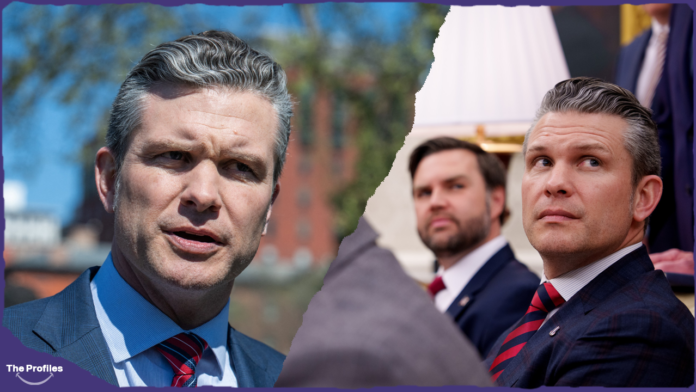Pete Hegseth refutes Jeffrey Goldberg’s allegation that the Trump administration shared war plans for Yemen with him
U.S. Defense Secretary Pete Hegseth has vehemently denied claims that he and other top Trump administration officials unintentionally gave Jeffrey Goldberg, editor-in-chief of The Atlantic, access to classified Yemen war plans, a development that has sparked intense discussion and alarm. These allegations came to light after it was revealed that Goldberg had been inadvertently added to a Signal group discussion that discussed delicate military operations.
The Alleged Incident :
The uproar started when The Atlantic revealed that senior officials, such as National Security Advisor Mike Waltz and Vice President JD Vance, coordinated attacks against Yemen’s Houthi rebels via the encrypted communications app Signal. The article claims that Goldberg was inadvertently included to this group conversation, giving him access to comprehensive details regarding the activities that were scheduled. The National Security Council has declared an investigation into the event and confirmed that the texts are real.
Hegseth’s Response :
“Nobody was texting war plans, and that’s all I have to say about that,” Hegseth said in response to these allegations while on an official visit to Hawaii. Additionally, he attacked Goldberg and The Atlantic, casting doubt on their veracity and charging them with a track record of unfavorable coverage of President Trump.
Details of the Group Chat :
According to reports, prominent officials like Vice President JD Vance, Secretary of State Marco Rubio, and National Security Adviser Mike Waltz were part of the group chat, which was designed for high-level conversations on military policy. There are serious security issues with using the nonprofit texting tool Signal for such delicate discussions. Given that Signal is susceptible to hacking and is not permitted to discuss classified material, critics contend that this represents a serious protocol violation.
Political and Legal Repercussions :
Democratic lawmakers and national security experts have voiced their concern over the possible mishandling of classified information and are calling for thorough investigations in response to the alleged security lapse. The use of Signal for these discussions has been particularly criticized, highlighting potential violations of federal laws and security protocols.
In response, President Trump said that although he was not aware of the occurrence, an investigation has been started. The administration continues to have faith in its national security personnel in spite of the scandal. Karoline Leavitt, the press secretary for the White House, stressed that the continued effectiveness of operations against the Houthi rebels shows that senior officials are effectively coordinating their policies.
Broader Implications :
The significance of strict communication channels at the highest levels of government, particularly when it comes to national security issues, is highlighted by this occurrence. The administration’s internal procedures and strategy for protecting classified information may be significantly impacted by the investigation’s conclusion. It also calls into question how to strike a balance between the necessity of effective communication among top executives and operational security.
The administration must work to rebuild trust in its management of private data while making sure that similar breaches don’t happen again while the probe progresses.


